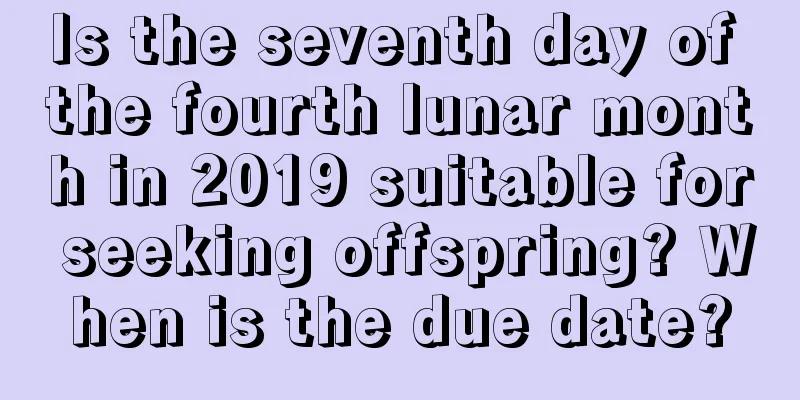When is Laba Festival in 2018? What is the legend of Laba Festival?

Introduction: In our country's culture, there are many important festivals in a year that are remembered by people, and many days have profound origins and meanings. So when is Laba Festival in 2018? What is the legend of Laba Festival? Which days in the twelfth month of the lunar calendar are worthy of our attention? The Fortune Teller website has compiled various matters concerning the twelfth month of the lunar calendar for your reference.When is Laba Festival in 2018?January 24, 2018, the eighth day of the twelfth lunar month, Wednesday, the most important festival in the twelfth lunar month is the eighth day of the twelfth lunar month, which was called "La Day" in ancient times and commonly known as "Laba Festival". Laba is an ancient sacrificial ceremony for celebrating the harvest and thanking ancestors and gods (including door gods, household gods, house gods, kitchen gods, and well gods). The Laba day was called "Jiaping" in the Xia Dynasty, "Qingsi" in the Shang Dynasty and "Dala" in the Zhou Dynasty. Because it was held in December, that month was called the La Month, and the day of the Laba Festival was called the La Day. In the pre-Qin period, Lari was the third Xu day after the winter solstice. Laba Festival is a festival for worshiping ancestors and gods and praying for a good harvest and good luck. Later, Buddhism was introduced to China in the Eastern Han Dynasty. In order to expand its influence in the local area, it gradually attached itself to traditional culture and designated Laba Festival as the day of Buddha's enlightenment. It is said that the day of enlightenment of Sakyamuni, the founder of Buddhism, was also the eighth day of the twelfth lunar month. Therefore, Laba is also a festival for Buddhists, called "Buddha's Enlightenment Day."What are the legends about Laba Festival?Laba Festival Legend 1Laba Festival is on the eighth day of the twelfth lunar month. It originated in the late Yuan Dynasty and early Ming Dynasty. It is said that when Zhu Yuanzhang was suffering in prison, it was a cold day. Zhu Yuanzhang, who was cold and hungry, actually dug out some red beans, rice, red dates and seven or eight kinds of grains from the rat hole in the prison. Zhu Yuanzhang cooked these things into porridge. Because that day was the eighth day of the twelfth lunar month, Zhu Yuanzhang named this pot of multi-grain porridge "Laba porridge". Enjoyed a delicious meal. Later, Zhu Yuanzhang pacified the world and became the emperor. In order to commemorate that special day in prison, he designated that day as Laba Festival and officially named the multi-grain porridge he ate that day as Laba porridge.The Legend of Laba Festival IIThe founder of Buddhism, Sakyamuni, was originally the son of King Suddhodana of Kapilavastu in northern ancient India (in present-day Nepal). Seeing that all living beings were suffering from birth, old age, sickness and death, and being dissatisfied with the theocratic rule of the Brahmins at the time, he gave up the throne and became a monk. He achieved nothing at first, but after six years of asceticism, on the eighth day of the twelfth lunar month, he attained enlightenment under the Bodhi tree and became a Buddha. During these six years of asceticism, he only ate one grain of hemp and one grain of rice every day. Later generations did not forget the suffering he endured, and ate porridge on the eighth day of the twelfth lunar month every year to commemorate him. "Laba" became the "Buddha's Enlightenment Day". "Laba" is a grand festival in Buddhism. Before liberation, Buddhist temples across the country held Buddha bathing ceremonies and chanting sessions, and imitated the legend of the shepherdess offering gruel to Sakyamuni before he attained enlightenment. They cooked porridge with fragrant grains and fruits to offer to the Buddha, which was called "Laba porridge." Laba porridge was given to disciples and believers, and it later became a folk custom. It is said that before the eighth day of the twelfth lunar month, monks in some temples would hold bowls and beg for alms on the streets. They would cook the collected rice, chestnuts, dates, nuts and other ingredients into Laba porridge and distribute it to the poor. It is said that after eating it one can get the blessing of Buddha, so the poor call it "Buddha porridge".Legend of Laba Festival 3Laba Festival comes from the custom of "beating ghosts with red beans". Legend has it that Zhuanxu, one of the Five Ancient Emperors, had three sons who turned into evil ghosts after their death and specifically came out to scare children. In ancient times, people generally believed in superstitions and were afraid of ghosts and gods. They thought that strokes, illnesses, and poor health among adults and children were all caused by plague ghosts. These evil ghosts are not afraid of anything in the sky or on the earth, but they are afraid of red beans, hence the saying "red beans can fight ghosts". Therefore, on the eighth day of the twelfth lunar month, people cook porridge with red beans and adzuki beans to get rid of epidemics and welcome good luck.Legend of Laba Festival 4Laba Festival originated from people's remembrance of the loyal minister Yue Fei. In those days, Yue Fei led his troops to fight against the Jin army in Zhuxian Town. It was the coldest time of winter, and Yue's army was poorly fed and clothed, suffering from hunger and cold. The people came one after another to send them porridge. Yue's army had a hearty meal of "Thousands of Family Porridge" sent by the people, and returned with a great victory. That day was the eighth day of the twelfth lunar month. After Yue Fei's death, in order to commemorate him, people would cook porridge with grains, beans and fruits on the eighth day of the twelfth lunar month every year, and it eventually became a custom.Laba Festival Legend 5When Qin Shi Huang built the Great Wall, migrant workers from all over the country came here in response to his orders. They could not go home for many years and had to rely on their families to send them food. Some migrant workers were separated from their homes by thousands of miles and could not receive food, which resulted in many of them starving to death at the Great Wall construction site. On the eighth day of the twelfth lunar month one year, the migrant workers who had no food to eat gathered together a few handfuls of grains, put them in a pot and cooked them into porridge. Each person drank a bowl of it, but in the end they still starved to death at the foot of the Great Wall. In order to mourn the workers who starved to death on the Great Wall construction site, people eat "Laba porridge" on the eighth day of the twelfth lunar month every year to commemorate them.Legend of Laba Festival 6According to legend, the old couple lived a hard-working and frugal life, and saved up a fortune. However, their beloved son was not ambitious and his wife was not virtuous, so they soon lost their family fortune. On the eighth day of the twelfth lunar month, the young couple was freezing and hungry. Fortunately, the villagers and neighbors came to help them and cooked a pot of "mixed porridge" made of rice, noodles, beans, and vegetables. It means: "Eat a bowl of mixed porridge and remember the lesson." This porridge helped the young couple get rid of their bad habits, get back on the right track, and support their family through hard work, and their lives got better day by day. The custom of eating porridge on Laba Festival is popular among the people. It is passed down by people in order to use this lesson to warn future generations.Summary: The above content is about [What day is Laba Festival in 2018? What is the legend of Laba Festival? 】Problem analysis, hope it can help everyone! |
Recommend
Is April 29th of the lunar calendar 2021 an auspicious day for a haircut? What does the hexagram look like?
April is the beginning of summer, when golden whea...
What zodiac sign are those born in the Great Cold of 2018? What's your personality like?
Introduction: Everyone is born with not only the z...
What is the fate of a baby boy born on the second day of the first lunar month in 2020? What is missing from the five elements for a baby born on the second day of the first lunar month?
Introduction: Children born on different days have...
Is it auspicious to visit graves and worship ancestors on the Mid-Autumn Festival in 2019? Analysis of Mid-Autumn Festival proverbs!
Introduction: You also need to choose an auspiciou...
What is the five elements of the eighth day of the first lunar month in 2019? Is it an auspicious day?
The eighth day of the first lunar month is the Gra...
What are the things that we cannot do during Qingming Festival? You can travel during Qingming Festival
Introduction: Qingming Festival is a national stat...
The lunar calendar for June 27, 2017, is it a good day?
1. What day is June 27th in the lunar calendar of...
Can I have a haircut on the tenth day of the first lunar month in 2021?
It is not suitable to get a haircut at any time. Y...
What is the lunar calendar for August 28th, 2020? Can I move into my new home?
The eighth month of the lunar calendar is halfway...
Query of auspicious time and inauspicious time for the ninth day of the tenth month in 2018
Want to know more about the auspicious and inausp...
Is the third day of the tenth lunar month in 2019 suitable for opening a new store?
According to traditional Chinese customs, auspici...
Is a girl born on the 13th day of the first lunar month in 2020 a lucky person for her husband? What is the personality of a person born today?
Introduction: Although the specific time of birth ...
What is the date and time of the Xiaoxue solar term in 2020? 4:39 am, November 22, 2020
Introduction: It is the time of the Minor Snow sol...
Check the lunar calendar for March 24, 2018. Is it a good day?
The Fortune Teller website has carefully compiled...
Is it okay to give birth on the second day of the sixth lunar month in 2021? Can I have a caesarean section?
The lotus breeze brings fragrance, and the bamboo ...









